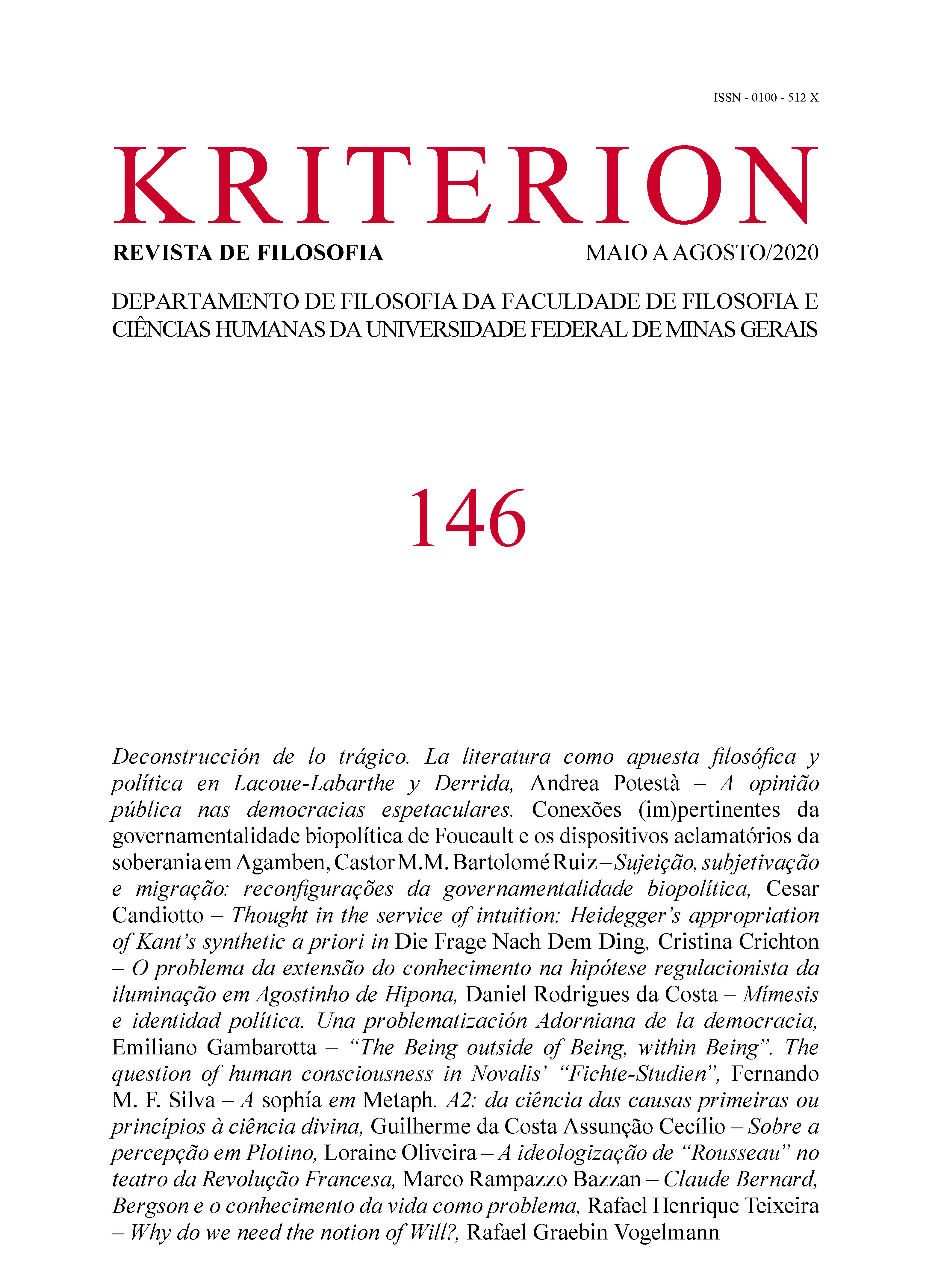WHY DO WE NEED THE NOTION OF WILL?
Palavras-chave:
Will, goals, motives, desires, incentivesResumo
It is commonly held that the goals at which an action aims are specified by the pro-attitude/belief pairs in light of which the action seems appealing to the agent. I argue that the existence of multiple-incentives cases (i.e., cases in which the agent has more than one incentive to act but in which her motive corresponds to only one of these incentives) shows this thesis to be false. In order to account for such cases we have to ascribe to agents the capacity to actively determine the goals at which their actions aim. I refer to this capacity as the agent’s “will”. Agents endowed with a will are capable not only of determining their own behavior but also their motives. I conclude that the existence of multiple-incentives cases shows that agents have this capacity.
Referências
BRATMAN, M.E. “Intention, Plans, and Practical Reason”. Cambridge: Harvard University Press, 1999.
DANCY, J. “Practical Reality”. New York: Oxford University Press, 2000.
DAVIDSON, D. “Essays on Actions and Events”. New York: Oxford University Press, 1980.
DICKENSON, J. “Reasons, causes, and contrasts”. Pacific Philosophical Quarterly, Vol. 88, 2007, pp. 1-23.
FRANKFURT, H. “Freedom of the Will and the Concept of a Person”. The Journal of Philosophy, Vol. 68, Nr. 1, 1971, pp. 5-20.
HERMAN, B. “On the Value of Acting from the Motive of Duty”. In: Herman, B. The Practice of Moral Judgment. Cambridge: Harvard University Press, 1993, pp. 1-22.
MCDOWELL, J. “Non-Cognitivism and Rule-Following”. In: McDowell. Mind, Value and Reality. Cambridge, Harvard University Press, 2002, pp. 198-218.
______. “Are Moral Requirements Hypothetical Imperatives?”. Proceedings of the Aristotelian Society, Vol. 52, 1978, pp. 13-29.
MELE, A. R. “Springs of Action”. New York: Oxford University Press, 1992.
NAGEL, T. “The Possibility of Altruism”. Princeton: Princeton University Press, 1978.
SCHROEDER, M. “Slaves of the Passions”. New York: Oxford University Press, 2007.
SCHUELER, G. F. “The Humean Theory of Motivation Rejected”. Philosophy and Phenomenological Research, Vol. LXXVIII, Nr. 1, 2009, pp. 103-122.
SINHABABU, N. “The desire-belief account of intention explains everything”. Nous, Vol. 47, Nr. 4, 2013, pp. 680-696.
SMITH, M. “The Moral Problem”. Oxford: Blackwell Publishing, 1994.
______. “Rational Capacities, or: How to Distinguish Recklessness, Weakness, and Compulsion”. In: Stroud, S. & Tappolet, C. (eds). Weakness of Will and Practical Irrationality. New York: Oxford University Press, 2003, pp. 17-38.
VELLEMAN, J. D. “What Happens When Someone Acts?”. Mind, Vol. 101, 1992, pp. 461-481.
WALLACE, J. “Normativity and the Will”. New York: Oxford University Press, 2006.
WATSON, G. “The Work of the Will”. In: Stroud, S. & Tappolet, C. (eds.), Weakness of Will and Practical Irrationality. New York: Oxford University Press, 2003, pp. 172-200.
WILLIAMS, B. “Internal and External Reasons”. In: Williams, B. Moral Luck: Philosophical Paper 1973-1980. Cambridge: Cambridge University Press, 1981, pp. 101-113.










